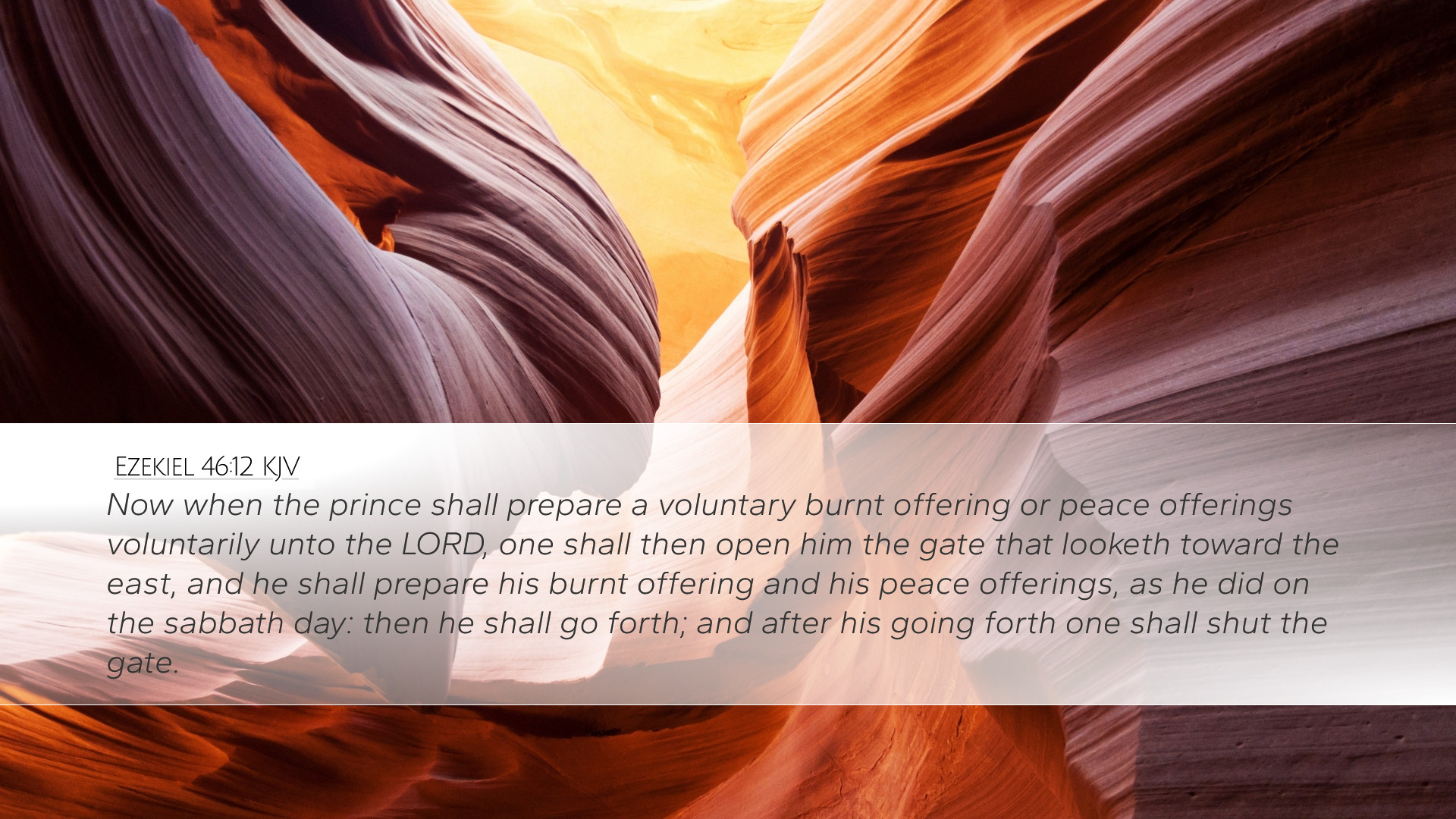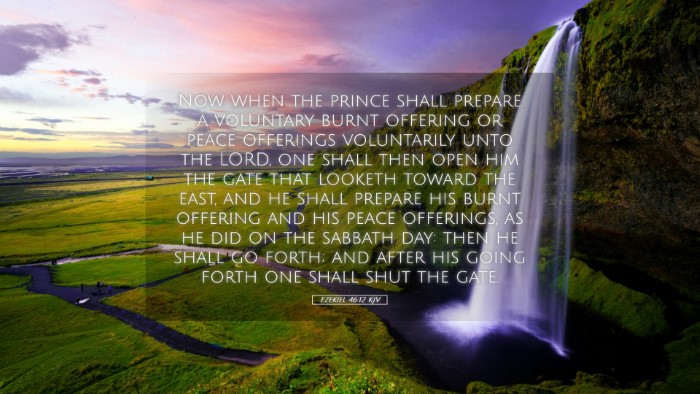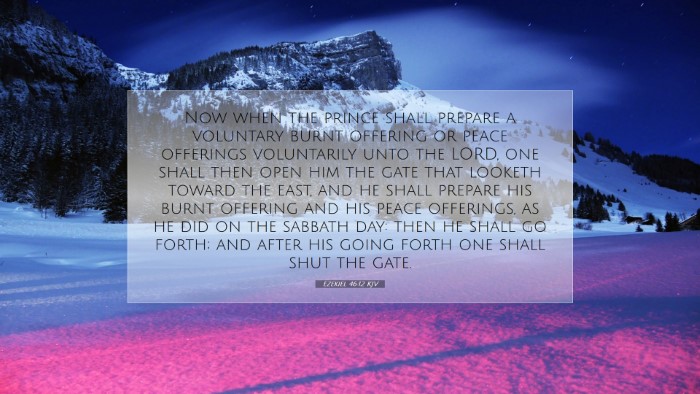Ezekiel 46:12 Commentary
Ezekiel 46:12 states, "And when the prince shall prepare a voluntary burnt offering or peace offerings voluntarily unto the LORD, one shall then open him the gate that looketh toward the east, and he shall prepare his burnt offering and his peace offerings, as he did on the sabbath day: then he shall go forth; and after his going forth one shall shut the gate."
Contextual Overview
The Book of Ezekiel is a profound prophetic work centered on the themes of judgment, restoration, and the glory of God. Chapter 46 distinctly addresses the practices associated with the temple worship in the eschatological context. The verse in question reflects on the role of the prince, a figure likely representing the Messiah or a leading political figure with religious significance in the restored Israel.
Commentary Insights
Matthew Henry's Commentary
Matthew Henry emphasizes the significance of the voluntary offerings brought forth by the prince. He interprets the act of preparing offerings as a symbol of devotion and personal commitment to God. Voluntary offerings, unlike obligatory ones, are driven by the individual's desire to express gratitude and reverence towards God. Henry suggests that such acts indicate the heart's alignment with divine will, demonstrating that worship must come from a willing spirit.
Albert Barnes' Commentary
Albert Barnes expands on the methodical nature of the worship practices described in this chapter. He notes that the ceremonial aspects underscore the necessity for order in worship. The actions of the prince, particularly the opening and shutting of the gate, symbolize the access believers have to God. Barnes points out that this reflects a precursor to the New Testament understanding of Christ as the gate through which believers approach God, illustrating how this passage foreshadows the significance of Christ in the place of worship.
Adam Clarke's Commentary
Adam Clarke draws attention to the implications of the prince's actions on offering burnt and peace offerings. He elucidates that the burnt offering represents atonement and the dedication of oneself to God, while the peace offering emphasizes communion between God and man. Clarke highlights that even the eastward direction of the gate hints at the rising of the sun, which can be seen as symbolic of illumination and divine presence. This directionality is intended to remind worshippers of their connection to the Creator and His ever-watchful participation in their lives.
Theological Reflections
The thorough examination of Ezekiel 46:12 invites profound theological reflections. It intertwines concepts of sacrifice, accessibility to God, and worship. The notion of voluntary offerings speaks to a relationship where love, grace, and gratitude compel worshippers to draw near to God. It reiterates that true worship is a response to God’s initiative of grace.
- Access through Christ: Just as the prince had designated times and means of approach to God, Christians recognize Jesus as the ultimate sacrifice who grants direct access to the Father.
- The Role of Leaders: The duties ascribed to the prince have implications for spiritual leadership today, emphasizing the necessity of leading communities in genuine worship.
- Importance of Intentional Worship: The distinction between voluntary and obligatory offerings compels an examination of our motivations in worship. Are our acts of worship directed by obligation, or are they fueled by a heartfelt love for God?
Practical Applications
For pastors, students, and theologians alike, the insights gained from Ezekiel 46:12 can be applied in various ways:
- Encourage congregants to engage in voluntary acts of worship and service as expressions of love rather than mere duty.
- Explore the implications of leadership in spiritual contexts, aiming to exemplify a commitment to leading others into deeper worship practices.
- Reflect on personal worship practices to ensure they align with a genuine relationship with God, inspired by gratitude and love.
Conclusion
Ezekiel 46:12 serves as a reminder of the heart of worship in the community of faith. It strengthens the call for worship that is not only orderly and reverent but also deeply personal and voluntarily engaged. The prince's role illustrates the ongoing need for leaders who reflect the character of God and direct others toward true fellowship with Him, exemplifying the sacred rhythm of worship that engages both heart and mind.


